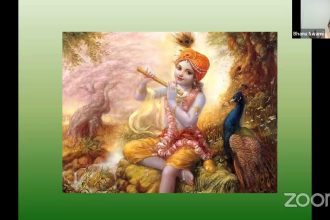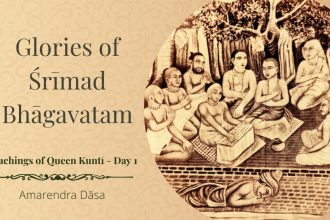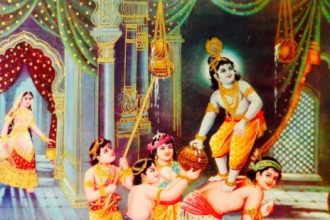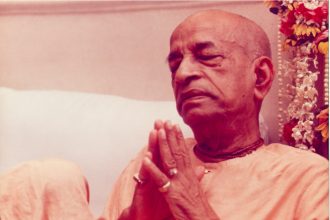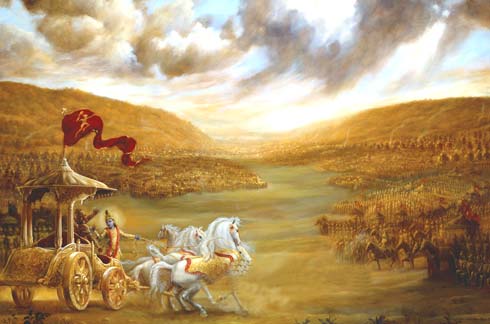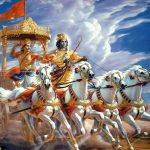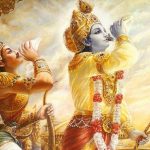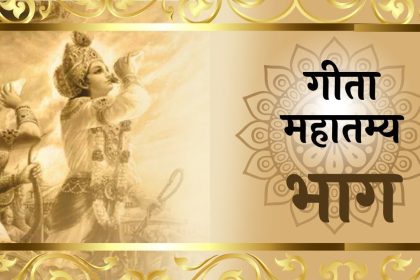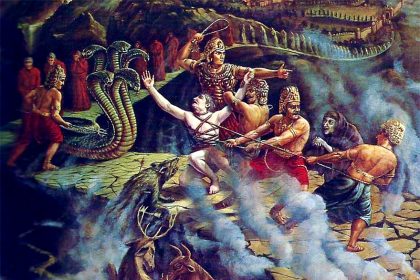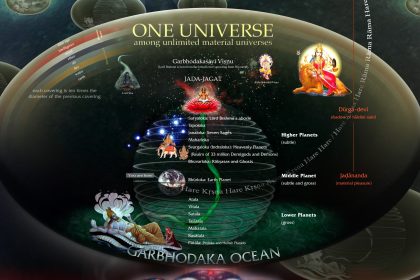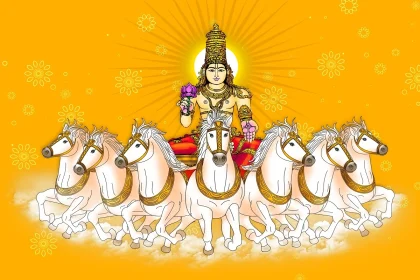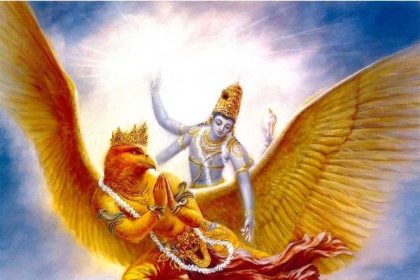TEXT 11
ayaneṣu ca sarveṣu
yathā-bhāgam avasthitāḥ
bhīṣmam evābhirakṣantu
bhavantaḥ sarva eva hi
SYNONYMS
ayaneṣu—in the strategic points; ca—also; sarveṣu—everywhere; yathā-bhāgam—as differently arranged; avasthitāḥ—situated; bhīṣmam—unto Grandfather Bhīṣma; eva—certainly; abhirakṣantu—should give support; bhavantaḥ—you; sarve—all respectively; eva hi—certainly.
TRANSLATION
All of you must now give full support to Grandfather Bhīṣma, as you stand at your respective strategic points of entrance into the phalanx of the army.
PURPORT
Duryodhana, after praising the prowess of Bhīṣma, further considered that others might think that they had been considered less important, so in his usual diplomatic way, he tried to adjust the situation in the above words. He emphasized that Bhīṣmadeva was undoubtedly the greatest hero, but he was an old man, so everyone must especially think of his protection from all sides. He might become engaged in the fight, and the enemy might take advantage of his full engagement on one side. Therefore, it was important that other heroes not leave their strategic positions and allow the enemy to break the phalanx. Duryodhana clearly felt that the victory of the Kurus depended on the presence of Bhīṣmadeva. He was confident of the full support of Bhīṣmadeva and Droṇācārya in the battle because he well knew that they did not even speak a word when Arjuna’s wife Draupadī, in her helpless condition, had appealed to them for justice while she was being forced to appear naked in the presence of all the great generals in the assembly. Although he knew that the two generals had some sort of affection for the Pāṇḍavas, he hoped that these generals would now completely give it up, as they had done during the gambling performances.
TEXT 12
tasya sañjanayan harṣaṁ
kuru-vṛddhaḥ pitāmahaḥ
siṁha-nādaṁ vinadyoccaiḥ
śaṅkhaṁ dadhmau pratāpavān
SYNONYMS
tasya—his; sañjanayan—increasing; harṣam—cheerfulness; kuru—vṛddhaḥ—the grandsire of the Kuru dynasty (Bhīṣma); pitāmahaḥ—the grandfather; siṁha-nādam—roaring sound, like that of a lion; vinadya—vibrating; uccaiḥ—very loudly; śaṅkham—conchshell; dadhmau—blew; pratāpa-vān—the valiant.
TRANSLATION
Then Bhīṣma, the great valiant grandsire of the Kuru dynasty, the grandfather of the fighters, blew his conchshell very loudly, making a sound like the roar of a lion, giving Duryodhana joy.
PURPORT
The grandsire of the Kuru dynasty could understand the inner meaning of the heart of his grandson Duryodhana, and out of his natural compassion for him he tried to cheer him by blowing his conchshell very loudly, befitting his position as a lion. Indirectly, by the symbolism of the conchshell, he informed his depressed grandson Duryodhana that he had no chance of victory in the battle, because the Supreme Lord Kṛṣṇa was on the other side. But still, it was his duty to conduct the fight, and no pains would be spared in that connection.


